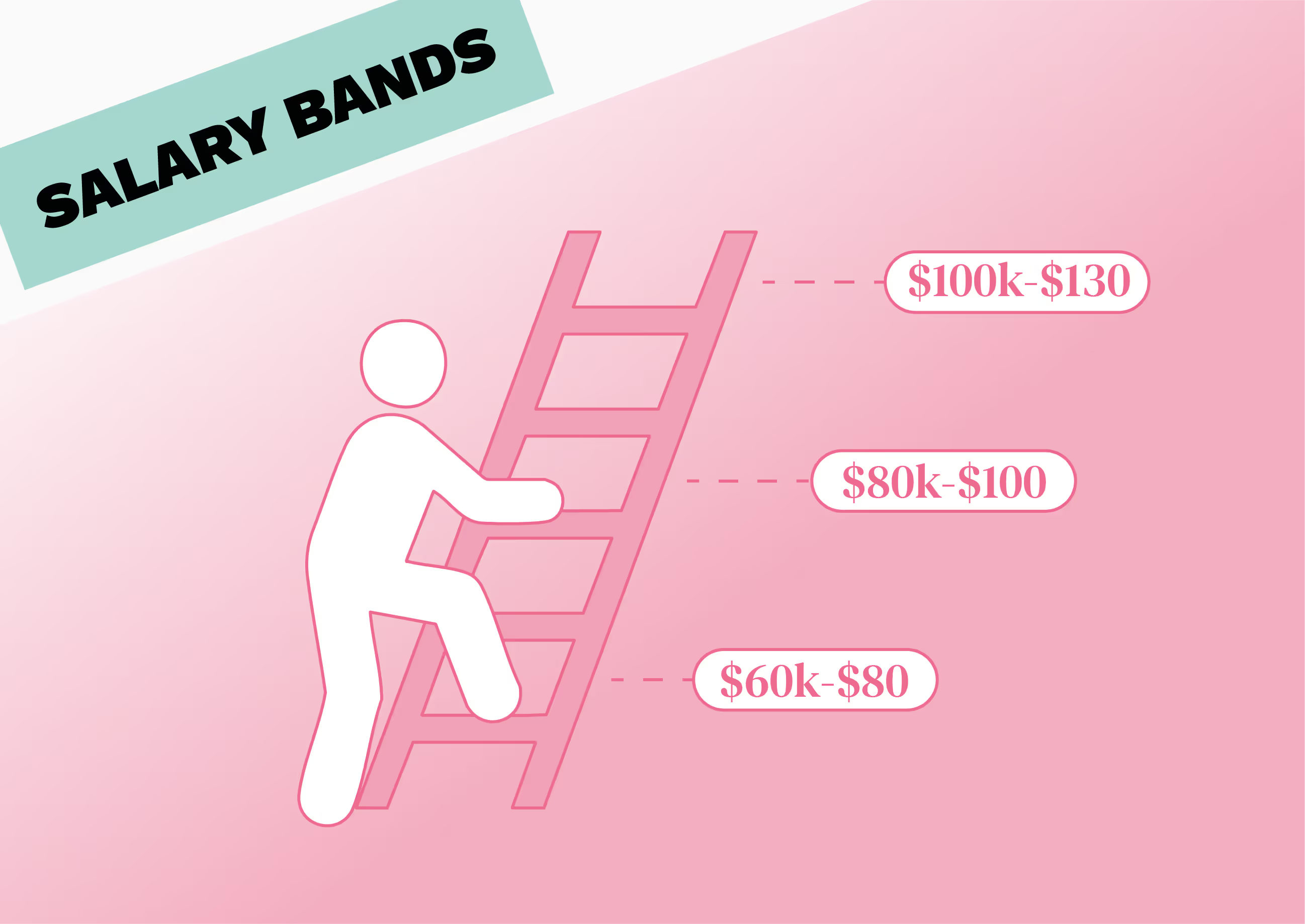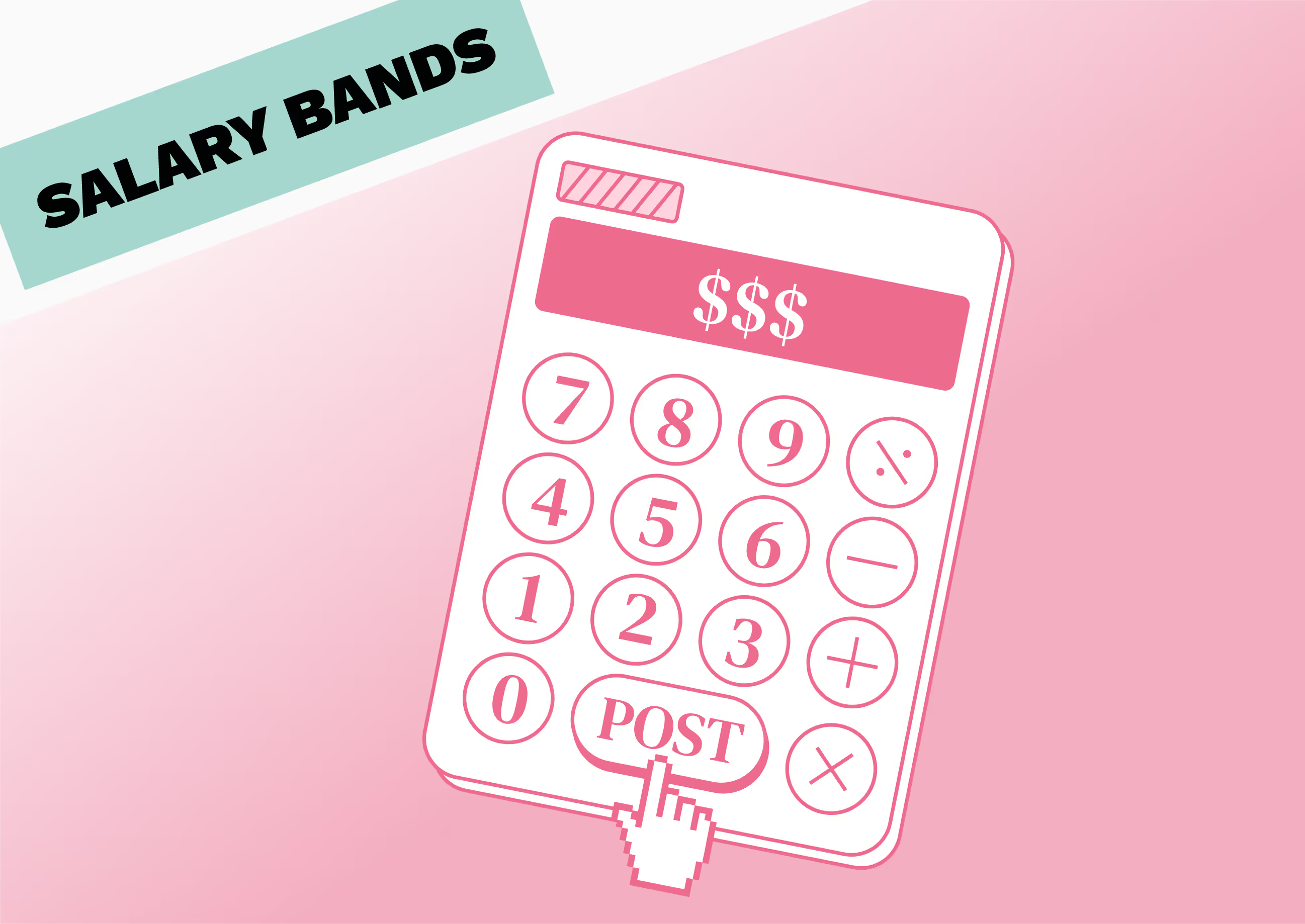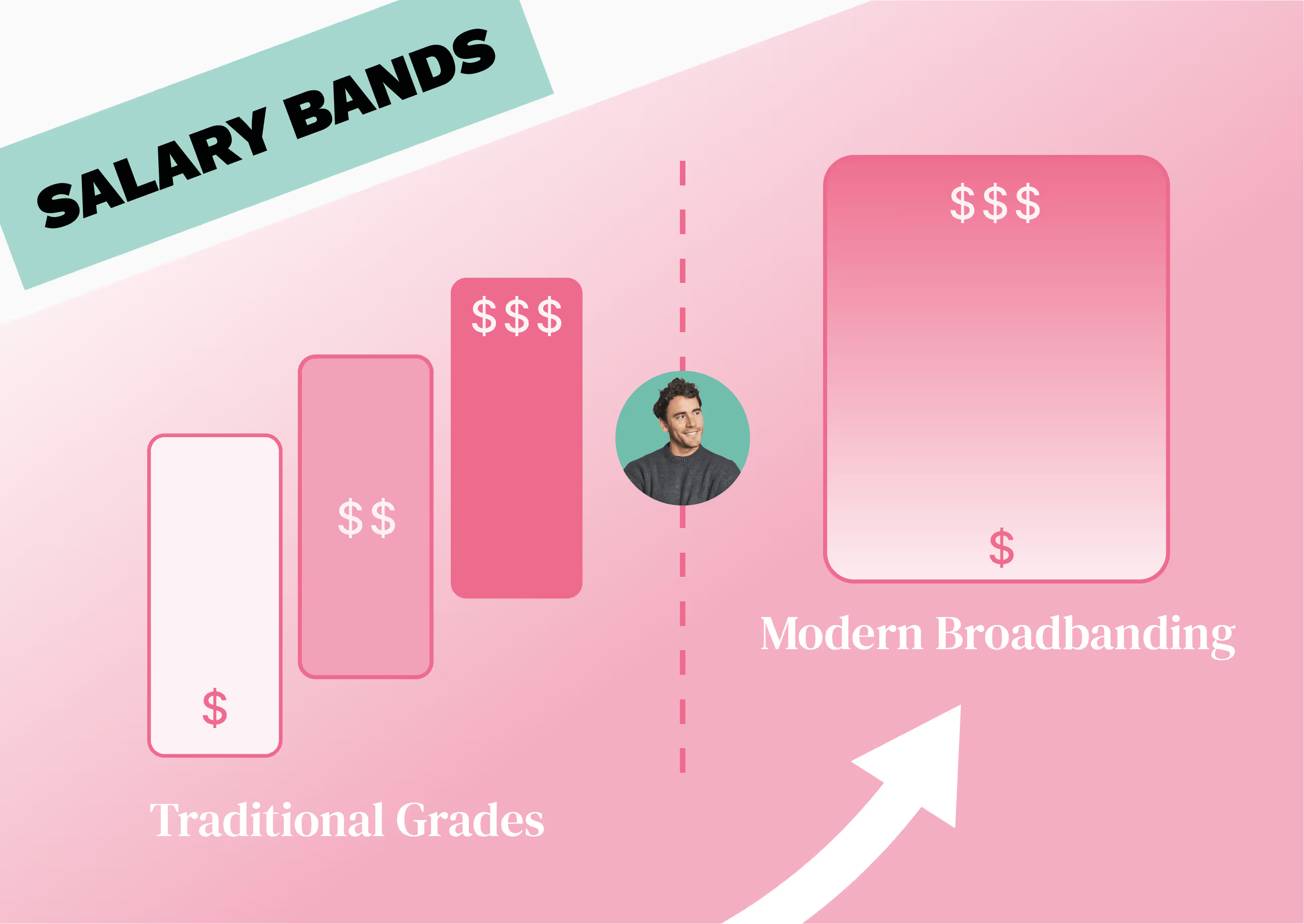Salary bands provide a clear, structured framework for pay and progression within an organisation. By using salary bands to guide every pay decision, employers can ensure that pay is based on a predetermined set of criteria — and not open to bias.
But no system is perfect. And no matter how much work you put into creating your salary bands, it’s likely that you’ll come across an outlier every now and then. In this article, we’ll discuss some of the reasons why employees end up being paid above or below their salary band — and what you can do about it.
Why salary band outliers come about
There are all sorts of reasons why an employee might end up being paid above or below their salary band — here are some of the most common ones:
- The employee’s starting salary was above or below the salary band: For example, an employee who is currently above their band might have been hired on a higher salary because they were an exceptional candidate. Or, they might have negotiated particularly well during the hiring process. Employees who are positioned below their band may have been hired at a lower salary, but compensated with additional benefits or equity (this is particularly common in early-stage startups).
- The employee’s pay progression has been faster or slower than average: If an employee has shown excellent performance, they may have been given more pay increases than average, which could put them above their band. And an employee could also end up below their band if they haven’t progressed at the expected rate, either because of underperformance or because their career trajectory has been lateral rather than upwards.
- The market has shifted since the employee was hired: Markets change quickly, particularly for certain roles. And this can lead to employees being hired on drastically different salaries for the same position. If you haven’t regularly adjusted salaries to keep them in line with the market, an employee could easily end up out of range.
- The employee was hired before the company had a consistent pay structure: Most commonly, employees end up being paid either above or below their salary band because they’ve been with the company since before those salary bands existed. While it may be easy to bring an out-of-range employee’s salary up to the right level, lowering a salary that’s above the range can prove trickier (we’ll get to that later on).
{{cta}}
How to deal with a salary band outlier
So, yes: there are lots of reasons why you might end up with employees whose salaries don’t fit into your carefully thought-out salary band system. But what can you actually do about it? Here are the steps to follow.
1. Identify the reason for the discrepancy
The first step in dealing with a salary band outlier is identifying why the employee is out of range. It’s important to investigate this before going further because the reason behind the discrepancy could impact how you handle it.
For example, an employee who has slipped below range because of underperformance could benefit from targeted training or a personal development plan to help them get back on track.
Of course, if you’re seeing a lot of salary band outliers, particularly within certain groups, it could be a sign that systemic bias is at play — which needs addressing quickly. Whatever the issue, you can’t solve a problem effectively if you don’t know what’s going on, so a thorough investigation is needed.
2. Decide whether to adjust the salary
Whether or not you decide to adjust the employee’s salary straight away might depend on the reason behind it — which is why the previous step is so crucial.
For example, an employee being either underpaid or overpaid could be explained by changes to the market since they were hired. If you’re planning to adjust your salary bands to account for market changes in your next compensation review, you may not need to take immediate action as this would bring them back in line anyway.
Similarly, an employee whose strong performance has resulted in them being paid above their salary band might be due a promotion into the next band soon. In this case, taking measures to reduce or freeze their salary might not be worth the drop in engagement it could cause.
Of course, if you decide not to take immediate action, that doesn’t mean ignoring the outlier. Instead, you should continuously monitor the situation to make sure it doesn’t get any worse, and regularly reconsider whether action is necessary.
3. Bring the salary back in range
If you do decide to bring the employee back within their expected range, the steps you’ll need to take are different depending on whether they are currently being paid above or below the band.
For employees paid below the band
If an employee is being paid below their salary band, the most obvious solution is to give them an immediate increase to bring them back in range. However, it’s important to consider how this could affect things in the long term.
For example, giving an employee a significant off-cycle compensation adjustment could set unrealistic expectations for the future, particularly if you’re not clear in your communication. It might be better to wait until your planned compensation review, or even split the large raise into two smaller ones.
Also, sometimes an immediate increase isn’t possible because of budget constraints. In this situation, you could choose to issue small, incremental increases (for example, every six months) until the employee is back in range. Or, you could give the employee a one-off bonus and address the situation more fully during your next compensation review.
For employees paid above the band
When employees are paid above their salary band, the situation is a bit trickier. It’s generally not possible to reduce an employee’s salary — and it would be disastrous for morale even if you could. However, there are a few options available.
First, you could consider ‘freezing’ the employee’s salary by making them ineligible for any further raises until the market catches up with their salary. If this seems too excessive, you could choose to slow down increases rather than stopping them completely. You could also compensate the employee with one-off bonuses or additional benefits while their pay progression is frozen or limited.
Alternatively, you could work on helping the employee to move into the next salary band, which would put them back within the expected range for their job level. To do this, you might want to offer additional training, coaching or other career development resources.
{{cta}}
Looking beyond individual outliers
As we said at the top of this article, no salary band system is perfect. And the occasional outlier isn’t anything to worry about, as long as you know how to handle it.
But, if your salary band system is well-designed and thought-out, outliers shouldn’t be cropping up all over the place. If you’re seeing a lot of salary band outliers, it could be worth zooming out and considering your wider compensation structure.
First, too many outliers could be an indication that systemic bias is causing internal pay inequity. For example, if women are systematically offered lower starting salaries and promoted less often than men, tweaking individual salaries isn’t going to help in the long run. If you discover that most people who are paid below their band belong to a particular group, this probably requires further investigation.
Having a lot of salary band outliers could also be an indication that your salary band system requires a rethink. This might mean:
- Shifting the minimum salary for each band to align with changes in the market
- Adjusting your desired positioning in your compensation philosophy
- Introducing more granular salary bands to account for different job levels
- Widening your salary bands to allow for greater flexibility at the top and bottom
Of course, even if you’re not seeing a lot of outliers, you should still be tracking key metrics to ensure your salary bands are still working as intended. Other signs that you might need to reassess your compensation structure include a drop in offer acceptance and high voluntary turnover — both of which indicate that your salaries might not be as competitive as you think they are.
Want to learn more about maintaining your salary bands? Watch our recent webinar (or read the summary) here!
Easily maintain and adjust salary bands with Figures
Maintaining and adjusting salary bands is a lot of work — but it doesn’t have to be. Figures gives you and your team everything you need to set up and maintain a fair, structured salary grid, with real-time market data built right in.
Thanks to our intuitive visual platform, it’s easy to spot a salary band outlier. And our platform even gives you access to key data and insights, like the total budget you’d need to bring everyone in line.
Want to see Figures in action? Book your free demo to get started.
Summarize this article with AI
No time to read it all? Get a clear, structured, and actionable summary in one click.






